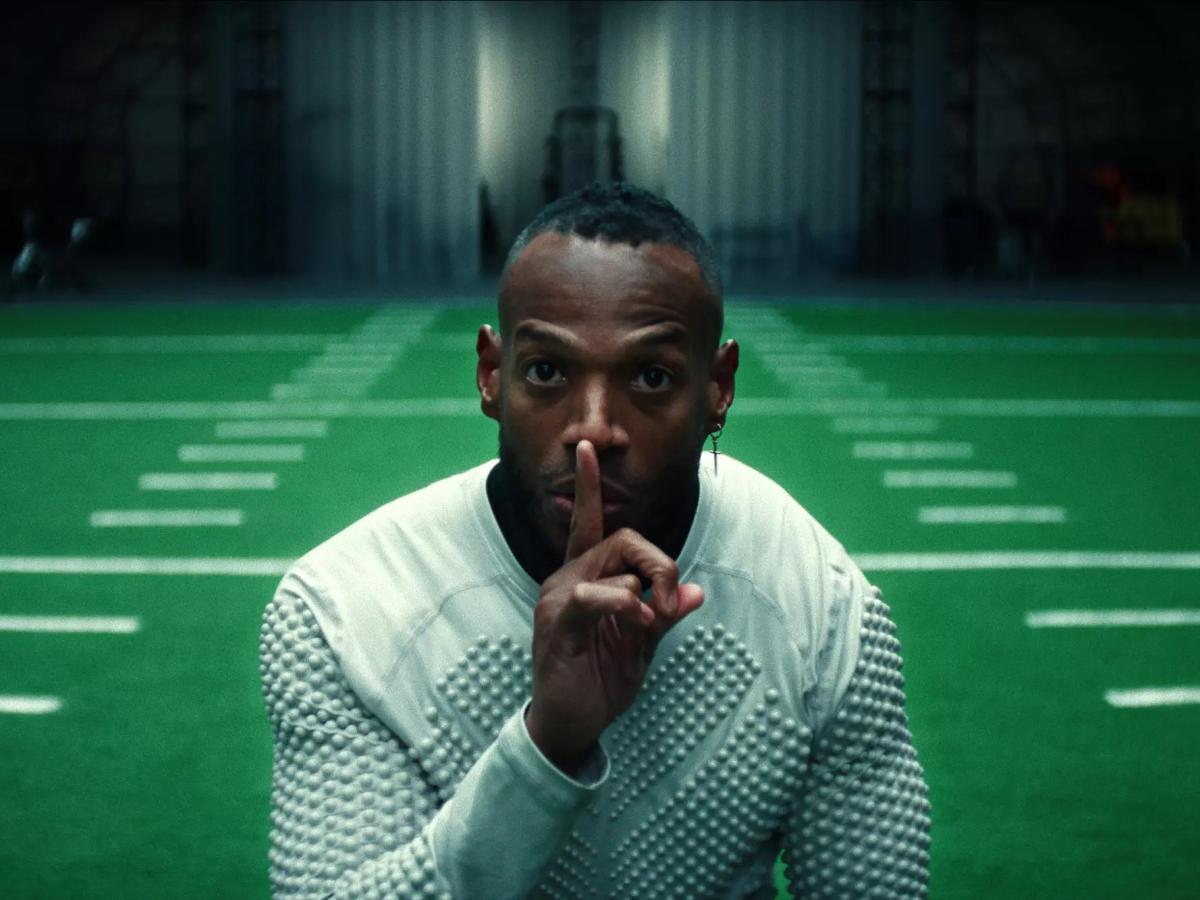
This has been a tremendously difficult review to write. I’ve written and re-written this review for two weeks now. You will see why.
The Zone of Interest begins idyllically. A family is picnicking by a lake. The men swim, the women pick berries in the woods. It's a gorgeous sunny day. The family happily drive home down an evocatively headlamp-lit country road. The father walks through their palatial house, turning off every light. The next morning the family are gathered outside to give the father his birthday present: a canoe. Two boys lead their blindfolded father gently down the steps from the house to the garden. The garden is magnificent: filled with flowers and immaculately kempt.
The father is wearing an SS uniform. The camera pans round the garden. Behind the garden wall you see glimpses of barbed wire, belching chimneys, rows of dormitories. You hear shouts, moans, cries, gunshots. This is no ordinary house, no ordinary garden, no ordinary family. This is the home of SS-Obersturmbannführer Rudolf Höss, his wife Hedwig, and their five children. This is Auschwitz. Höss runs it. Hedwig runs their beautiful home. The children run around. That is the next 100 minutes of film. It's a realist family drama from the 1940s. The children are children, the wife is house-proud to a fault, and the husband is hard-working, ambitious, and keen to do a good job. I don’t want to say much more. You simply need to go and see the film.
When Hannah Arendt published Eichmann in Jerusalem: A Report on the Banality of Evil it was controversial. Many commentators misunderstood or misrepresented her point. Evil acts - especially an evil act as totemic as the Holocaust - are not ‘banal’. The people who commit evil on such a scale often can be. A genocidal machine of such scale and complexity needs a tremendous number of cogs… they can’t all be murderous sociopaths. Eichmann was banal in himself - he was of average intelligence, uncreative in his thinking, a follower of fads and joiner of organisations.
This is exactly how Rudolf and Hedwig are presented. Christian Friedel plays Höss with an almost continual ambience of low-level boredom. Pillow-talk with his wife, reading to his children, a discussion about the most efficient way to incinerate the Jews in his camp, is all spoken with roughly the same expression and tone. He clearly wants to do well in his work, but it doesn’t matter what the work is. Sandra Hüller gives Hedwig a marvelous, slightly nervous energy. She always seems to be keeping a combination of grasping envy and slimy smugness just barely contained beneath the surface of her features. She can’t think of much beyond the order of her house, the beauty of her garden, and her status among other SS wives. Their quality of attention is essentially absent.
Glazer has the maturity to recognise that looking directly at evil stops you from really seeing it.
Not to be flippant, but they would be dreadful dinner-party guests, and not just because they are Nazis: they seemingly have no capacity for a thought that goes beyond themselves, and their immediate environment, and their immediate needs and wants. They are banal.
Between them Jonathan Glazer (director), Łukasz Żal (cinematographer), and Mica Levi (musician) give a remarkable demonstration of the power of restraint. The camerawork is naturalistic and almost never showy. The performers look like they were given the latitude simply to be in the scene: no over-direction. The soundscape is hauntingly bare. There is little music or sound beyond the ambient. The mood is, of course, set by the fact that the ambient sounds are roaring furnaces, gunshots, and desperate screaming. The film does not attempt to make a point or demand a response; Glazer simply gives you a slice of domestic life that just happens to be located next door to a death-camp.
Steven Spielberg has suggested this is the best film tackling the dreadful subject of the Holocaust since Schindler's List. He is wrong. The Zone of Interest is a far superior film. I love Spielberg, but Schindler's List is offensively bad. It takes a subject of such abject depravity and then tries to emotionally manipulate you into feeling bad: the music, the speeches, the more-is-more approach to showing you the pinnacle of human cruelty. Glazer has the maturity to recognise that looking directly at evil stops you from really seeing it. As Augustine says, evil is nothing in itself. Evil is the corruption and annihilation of what is good and lovely. Evil isn’t some great monster that forever battles with God. God is good…no…God is Good. So evil is literally nothing - goodness in decay to nothingness.
Glazer, whether intentionally or not, recognises this theological truth. Looking at the full abyssal nothingness of evil is beyond human comprehension. But if you see it in the periphery, then you see it. When you hear the screams of the innocent and at the same time see a woman cheerfully ignore them while she plays in a flowerbed with her infant daughter, then you recognise the potential for human depravity. You can’t truly encounter the nothingness of evil, and the dangers of letting its parasitical and destructive hunger spread, until you’ve watched others ignore it without missing a beat. I’ve never cried while watching Schindler's List. I cried while watching The Zone of Interest. Twice.
Glazer et al have done the world a great service with this film. They’ve reminded us that the weapon against evil is the rejection of empty banality. Banality is loving yourself. To reject banality is to embrace a quality of attention that is truly outward looking. Rejecting banality is loving your neighbour as yourself.





